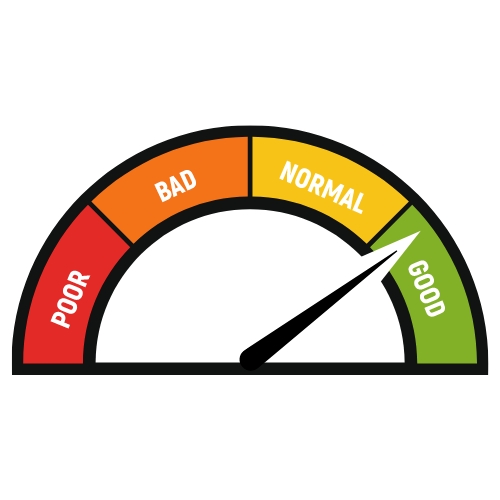
Taking out a loan can be useful for covering large expenses, but not everyone qualifies for the same loan amount. If you’re considering applying for a loan of R50 000, your salary plays a significant role in determining whether you’ll be approved. Lenders carefully evaluate your monthly income to see if you can afford the loan repayments.
Key Takeaways
- Salary and Affordability: Lenders evaluate your salary and monthly income to determine if you can afford a R50 000 loan. A debt-to-income ratio of around 30-40% typically improves your chances of approval.
- Credit Score and Expenses: A good credit score and minimal existing debt increase your likelihood of approval. Managing your expenses and improving your credit score before applying will help strengthen your application.
- Interest Rates Affect Repayments: The interest rate you receive has a major impact on your monthly repayments. Higher interest rates mean you’ll need a higher salary to comfortably manage the loan, so it’s important to compare lenders for the best terms.
Understanding Loan Requirements
When applying for any loan, including a R50 000 loan, lenders consider several factors before approving your application. These factors help them evaluate your ability to repay the loan. In South Africa, lenders are legally required to conduct affordability assessments to ensure that borrowers can repay the loan without facing financial hardship. Below are some of the basic requirements:

Credit Score
Your credit score plays a significant role in whether your loan application is approved. A good credit score reflects responsible debt management, while a low score could lead to loan rejection or higher interest rates.
In South Africa, credit scores generally range from 0 to 999, with scores above 650 considered favourable. A higher score improves your chances of approval and may also help you secure better interest rates. It’s advisable to check your credit report for any errors before applying for a loan to avoid unnecessary complications.

Affordability Assessments
South African lenders must perform an affordability assessment as per the National Credit Act (NCA). This involves reviewing your total income against your monthly expenses to ensure you have sufficient disposable income to cover loan repayments.
Lenders will typically request documentation such as payslips, bank statements, and proof of any additional income. They also consider existing debt, such as car repayments or credit card balances. Understanding your income and expenses in detail before applying will help you determine how much you can realistically afford to borrow.

Monthly Income
Your monthly income is a critical factor in the affordability assessment. Lenders generally expect your income to comfortably cover both your current expenses and the potential loan repayments. For a loan of R50 000, having a stable and adequate monthly income increases the likelihood of approval.
While income requirements vary between lenders, your loan repayments usually shouldn’t exceed 30% to 40% of your monthly earnings. This ensures that the loan doesn’t place undue pressure on your finances.
It can be frustrating to have your loan application declined, but understanding the reasons behind it can help you take corrective measures and improve your chances in the future.

Loan Amount and Salary Correlation
When applying for a R50 000 loan, your salary is a key factor that lenders will evaluate. A higher income increases your chances of approval, as lenders need to be confident that you can comfortably manage the monthly repayments without experiencing financial strain. In South Africa, lenders assess how much of your salary remains after accounting for living expenses and other financial obligations. Typically, they prefer that your total monthly debt repayments, including the new loan, do not exceed a certain percentage of your monthly income.
Lenders use affordability models to determine your capacity to manage a loan. For example, someone earning R15 000 per month will be assessed differently from someone earning R30 000. The income brackets that qualify for a R50 000 loan depend on factors such as interest rates, repayment periods, and your current financial commitments. Even if your salary is lower, you may still qualify, but you might need to opt for a longer repayment term or accept higher interest rates to make the repayments more manageable.
If you’re aiming for a big loan, understanding your after-tax salary is crucial. Check out our article on What is PAYE (Pay As You Earn) in South Africa? to avoid surprises when applying for finance.
How Lenders Calculate Affordability
South African lenders follow a specific process to determine whether a borrower can afford a loan. Affordability assessments are centred around the debt-to-income ratio, which measures the percentage of your monthly income allocated to repaying debts. This ratio helps lenders evaluate if you can manage an additional loan based on your existing financial obligations.
Lenders typically consider two main figures:
- Gross Monthly Income: This is your total income before any deductions, such as taxes and pension contributions.
- Net Disposable Income: This is the amount remaining after covering essentials like rent, groceries, utilities, and existing loan repayments. Lenders want to ensure you have sufficient funds left to handle the new loan repayments after all these expenses.
Here’s a basic outline of the formula lenders often use:
- Calculate Your Total Monthly Debt Repayments: This includes credit card repayments, personal loans, car finance, and any other debts you may have.
- Add the Expected Repayment for the New Loan: For a R50 000 loan, this amount will depend on the interest rate and repayment term. The lender will factor this into your total monthly debt.
- Determine Your Debt-to-Income Ratio: To calculate this, divide your total monthly debt repayments by your gross monthly income, then multiply by 100 to convert it into a percentage.
For example, if you have a monthly income of R20 000 and your total monthly debt, including the new loan, amounts to R7 000, your debt-to-income ratio would be 35% (R7 000 ÷ R20 000 × 100 = 35%). Most lenders prefer that this ratio does not exceed 30% to 40%. If your ratio is too high, lenders may either reject your application or offer a lower loan amount. Conversely, a lower ratio enhances your chances of approval.
In South Africa, the National Credit Act ensures that borrowers are not over-indebted, requiring lenders to carefully assess repayment ability. A low debt-to-income ratio indicates that you can afford the loan, which may also lead to better loan terms.
About Arcadia Finance
Effortlessly Secure Your Loan with Arcadia Finance – No Application Fees and Access to 19 Reliable Lenders, Fully Compliant with National Credit Regulations.
Income Brackets for a R50 000 Loan
When applying for a R50 000 loan, your salary is one of the key factors that lenders evaluate. In South Africa, lenders typically base their affordability calculations on your monthly income, taking into account your expenses and other financial commitments.
To provide a general idea of what income might qualify, consider this: most lenders prefer that your total monthly debt repayments, including the new loan, do not exceed 30% to 40% of your gross monthly income. This measure is known as your debt-to-income ratio.
If you have few financial obligations, you may qualify with a monthly income of R10 000 to R15 000. However, if you have other loans or expenses, this income range may not be sufficient. A more secure income bracket for a R50 000 loan is R20 000 and above, as this allows for greater flexibility and assures lenders that you have enough disposable income to comfortably manage repayments.
If you earn less than R10 000 per month, qualifying for a R50 000 loan can be challenging unless your expenses are minimal. Lenders assess both your income and expenses, so high costs, such as rent or other loans, may decrease your chances of approval. Conversely, if your financial obligations are low, you may have more capacity to manage a R50 000 loan.
A good credit score can be your key to unlocking better interest rates and loan terms. Knowing what constitutes a good credit score for loans will help you understand your financial standing before applying.

Additional Factors That Impact Loan Approval
While your salary is a significant factor in qualifying for a R50 000 loan, it’s not the only aspect that lenders consider. Here are a few additional elements that influence loan approval:
Credit History
Lenders assess your credit history to evaluate how well you’ve managed past debts. A good credit score indicates responsible repayment, increasing the likelihood of approval. Conversely, a low credit score due to missed payments or unpaid debts can make approval more difficult or result in higher interest rates.
Employment Stability
Lenders prefer applicants with stable employment. A long-term position with a consistent income reassures lenders about your ability to repay the loan. If you are new in a job or on a short-term contract, your chances of approval may decrease.
Existing Debts
Your current financial commitments are also important. If you have other loans or significant monthly expenses (e.g., rent, car payments), these obligations reduce your disposable income for new repayments. Lenders will assess your debt-to-income ratio before approving your application.
Type of Loan
Secured loans (backed by collateral such as a car or house) are often easier to obtain compared to unsecured loans. Unsecured loans carry more risk for lenders, leading to stricter requirements regarding income, credit score, and financial obligations.

How Interest Rates Affect the Required Salary
Interest rates significantly impact how much you need to earn to afford a R50 000 loan. Higher interest rates lead to increased monthly repayments, necessitating a higher income for comfortable repayment.
Interest Rate Impact
- At a 10% interest rate, the monthly repayment for a R50 000 loan over three years could be around R1 600.
- At 20%, this repayment might rise to R2 000 or more.
As the interest rate increases, so does the required salary to meet these repayments comfortably.
Repayment Term
- A longer repayment term typically results in lower monthly payments but means you’ll pay more total interest over the loan’s duration.
- Conversely, a shorter term leads to higher monthly payments but reduces the overall interest paid.
Affordability Assessment
Lenders evaluate whether your salary, in conjunction with the interest rate, allows you to manage the repayments effectively. Lower interest rates typically mean that less income is needed, making the loan more affordable.
To make an informed decision, it’s wise to compare various loan offers, as the interest rate directly influences your income requirements and overall loan affordability.
Conclusion
Applying for a R50 000 loan requires careful consideration of your finances. Lenders assess not only your salary but also factors like credit score, debt-to-income ratio, and existing commitments. To boost your approval chances, it’s important to manage expenses, reduce debt, and maintain a good credit score. Comparing loan offers and understanding interest rates will help you make an informed decision and secure the loan on favourable terms.
Frequently Asked Questions
The salary required for a R50 000 loan depends on your overall financial situation, including your existing debt, credit score, and monthly expenses. Generally, lenders prefer that your loan repayments do not exceed 30-40% of your gross monthly income. For a R50 000 loan, a secure income bracket is typically between R15 000 and R20 000 per month, though this can vary depending on the lender’s specific requirements.
Lenders calculate affordability by examining your debt-to-income ratio, which compares your total monthly debt repayments to your gross monthly income. They also evaluate your credit score, financial commitments, and disposable income to ensure you can comfortably manage the loan repayments without experiencing financial stress.
While it is possible to obtain a R50 000 loan with a low credit score, it may be more challenging and could result in higher interest rates or less favourable terms. Improving your credit score before applying will increase your chances of approval and may qualify you for better rates. You can work on enhancing your score by reducing outstanding debt, paying bills on time, and correcting any errors on your credit report.
Interest rates directly impact the amount you will repay each month. A higher interest rate increases your monthly repayments, meaning you will need a higher income to afford the loan. Conversely, lower interest rates result in smaller monthly payments, making the loan more affordable. It is important to compare interest rates from different lenders to find the best deal.
To apply for a R50 000 loan, you will typically need to provide proof of income (such as payslips), bank statements, and identification. Lenders may also request details about your monthly expenses and any existing debts. Having these documents ready will help streamline the loan application process.
Fast, uncomplicated, and trustworthy loan comparisons
At Arcadia Finance, you can compare loan offers from multiple lenders with no obligation and free of charge. Get a clear overview of your options and choose the best deal for you.
Fill out our form today to easily compare interest rates from 19 banks and find the right loan for you.


